AI Notetaker Released
AI-Native CRM for Financial Advisors
Spaces makes clients feel remembered and valued without lifting a finger.
Talk to the founder. Your feedback shapes Spaces.
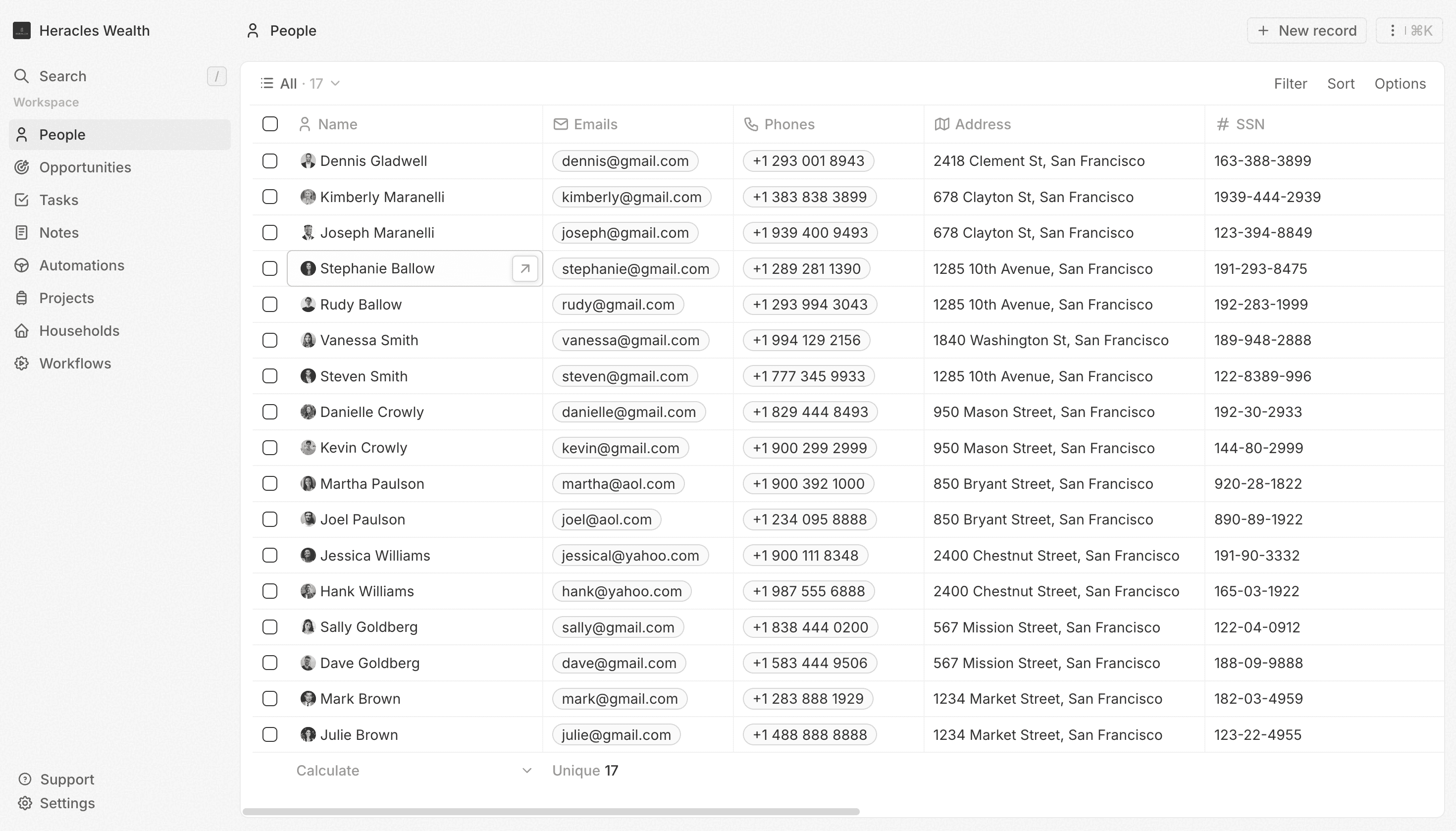
Finally, a CRM that works for you

Absurdly simple to setup
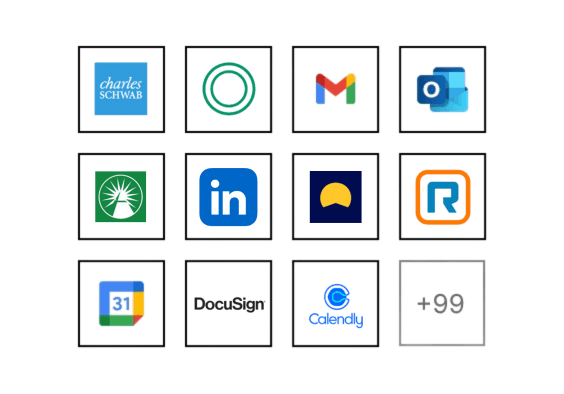
A single source of truth

Built for collaboration

Surprisingly proactive
Relationship Management
Effortlessly manage prospects, clients and households all in one place.
Know your client like a friend, not a file.
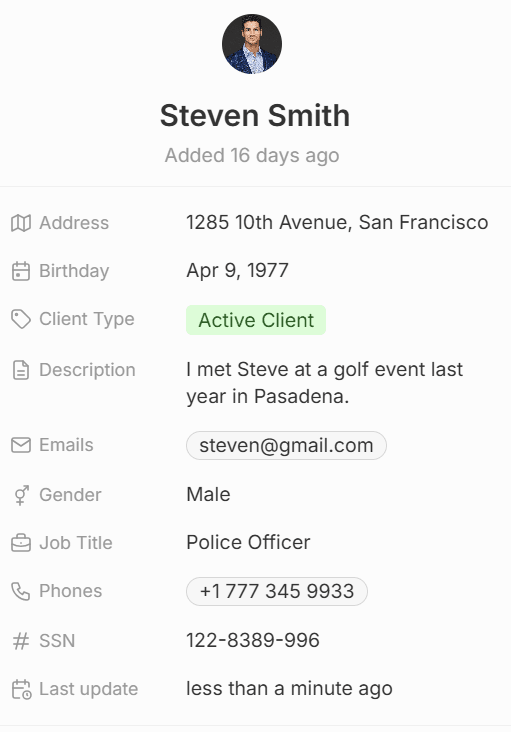
Every household in one place.

See progress with one view for your opportunities.
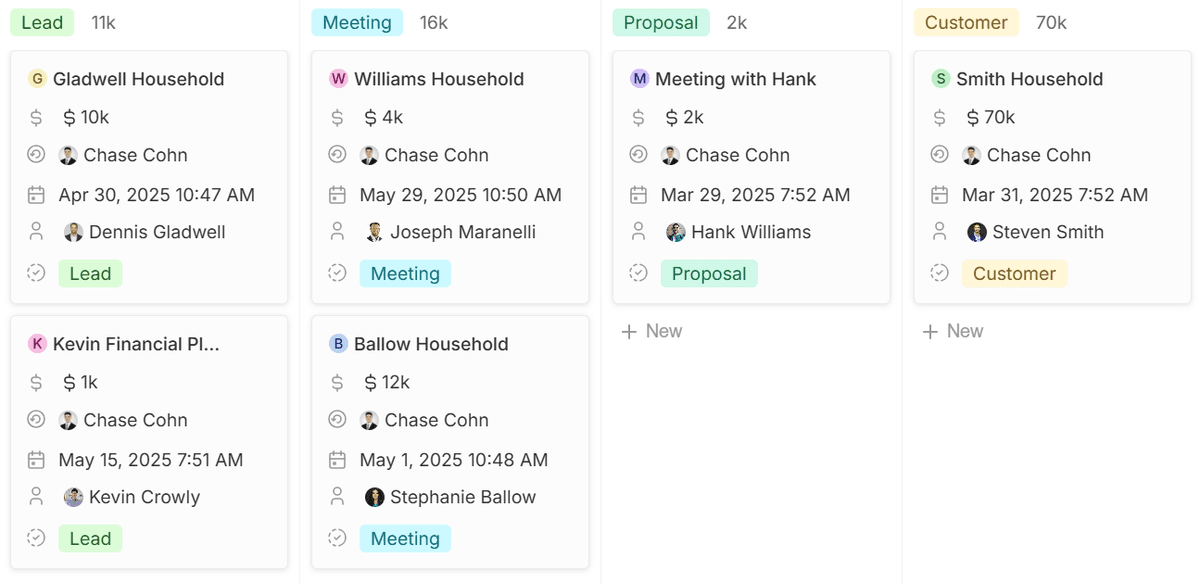
AI Meeting Intelligence
Spaces generates transcripts, summaries, and action items for every conversation.
Your customer calls live where they should — in your CRM, not scattered across tools.

Seamlessly integrate with Google Meet, Zoom, and Microsoft Teams, right out of the box.

Workflows & Automations
Spaces automates your tasks, sequences, and follow-ups so you can stay in motion — not stuck in manual work.
Stay on top of every task.

Trigger actions instantly or on a schedule.

Engage your clients with personalized workflows.

Document Management, Notes & Tasks
Spaces organizes your documents, notes, and tasks automatically, so nothing slips through the cracks.
See every document before you act.
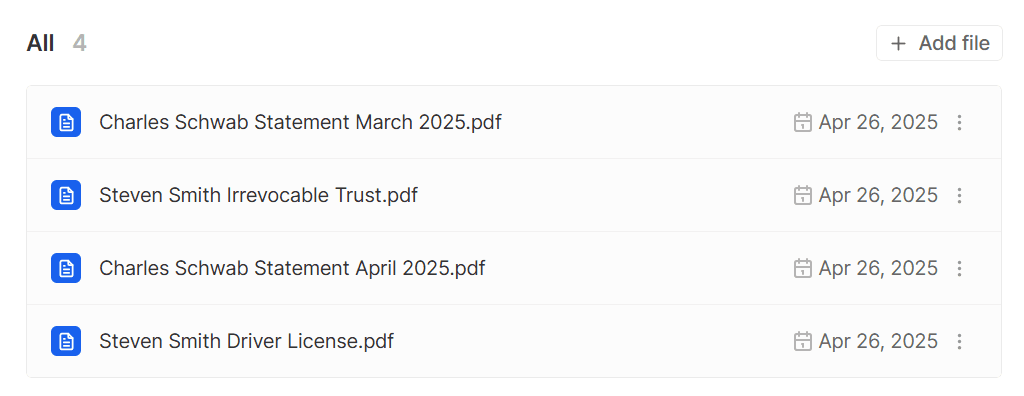
Never miss a note or client insight again.

Stay on top of every task.

Mail & Calendar
Sync your email and to to see all client communication in one place.
See every email right from your inbox.

See every event right from your calendar.
